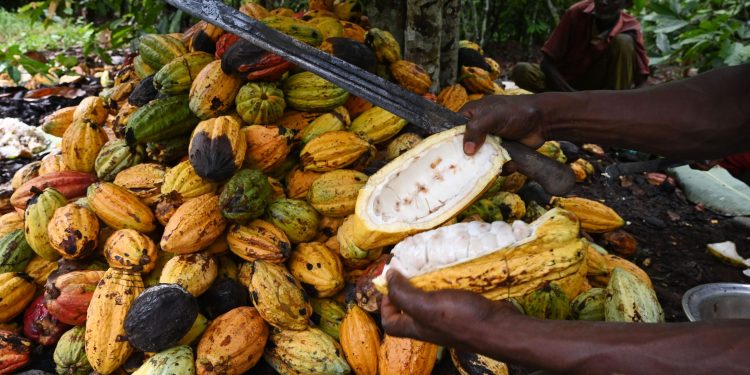Ghana’s cocoa sub-sector has recorded a 26% contraction in the third quarter of 2024, marking its fifth consecutive decline.
This sharp downturn contrasts starkly with the broader economy, which posted an impressive 7.2% growth during the same period.Excluding the impact of oil, Ghana’s economy in current terms expanded to GHȼ254 billion, up from GHȼ194 billion in the corresponding quarter of 2023.
The challenges facing the cocoa sub-sector began in the third quarter of 2023 and worsened significantly in early 2024.
The first quarter of this year saw the sector’s worst contraction at 20.2%.
However, hopes for recovery have been dashed, with contractions of 26% recorded in both the second and third quarters of 2024.
This prolonged slump raises serious concerns about the future of one of Ghana’s most critical export commodities, which supports the rural economy and significantly contributes to foreign exchange earnings.
Finance Lecturer at the University of Ghana Business School, Professor Lord Mensah, expressed deep concern about the situation and its potential impact on the country’s foreign exchange reserves. Speaking to Citi Business News, he urged the government to refocus attention on the cocoa sector to restore its stability.
“We have prioritized gold over cocoa. Even though both provide export earnings, cocoa gives us more liquidity. The cocoa sector has historically brought in significant inflows—about $1 billion to $2 billion annually—but we have missed out on these flows recently, and this has impacted our foreign exchange,” he explained.
Professor Mensah emphasized the need for strategic policies and investment in the sector.
“Cocoa is a liquid asset. You can borrow against unexported cocoa beans and repay once the exports are completed. It’s crucial to safeguard the sector, allocate resources effectively, and strengthen policies to ensure its performance,” he added.
The continued decline in the cocoa sub-sector demands policy interventions to protect this vital pillar of Ghana’s economy.



Leave a Reply